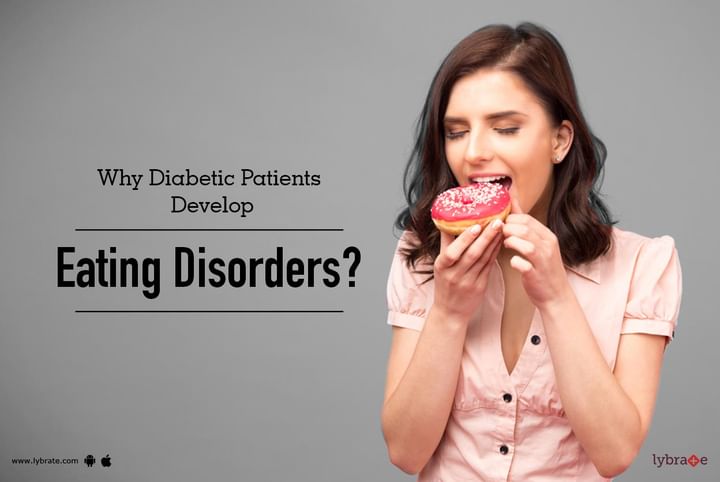Why Diabetic Patients Develop Eating Disorders?
Diabulimia is a type of eating disorder in which patients of Type 1 diabetes intake less amount of insulin purposely, in order to lose weight. This disorder, however, is not a formal diagnosis. The disorder may be defined as disturbed eating behavior.
Our body requires insulin for moving glucose from the blood to the cells. In type 1 diabetes patients, the pancreas stop producing insulin and glucose gets stored in our bloodstream. This causes extra stress on the kidney in getting rid of excess of sugar. The body gets devoid of glucose and the calories associated with it and a rapid loss in weight occurs. Patients develop binge eating, with more emphasis on sugar and carbohydrate enriched foods. The excess sugar gets out of the body by urinating.
The symptoms of this disease are:
- Occurrence of hyperglycemia
- Developing a habit of eating more, but still experiencing weight loss
- The shift in weight may be dramatic
- The energy level is low
- Eating patterns turn unusual
- Binge eating
- Developing an obsession for food
- Enhanced awareness about body image
- Feeling anxious about the weight
- A delay occurs in sexual maturity or attaining puberty
- Occurrence of stress
- Hospitalization is required frequently for diabetic patients
- Exercising amount increases
- The patient tends to hide food
- There is a smell of ketones from the breath and urine of the patient
- Frequency of urination gets enhanced
- Malnutrition occurs signalled by hair loss or drying of skin
Health hazards of Diabulimia
- Diabulimia can cause a great amount of permanent effects on the body, irrespective of age.
- Patients with diabulimia have a risk of getting early comorbidities.
- Health issues similar to issues arising from diabetes are observed, but are more adverse in nature.
- Dehydration happens along with excess urination.
- The patient experiences fatigue and the level of concentration falls down.
- An electrolyte disbalance is caused.
- There may be risk of heart attack, stroke, retinopathy, neuropathy, gastroparesis.
- Vascular disorders, gum infections and infertility in women may also occur.
- In the most extreme cases, death occurs.
Prevention
It has been proven by research that almost 30% of type 1 diabetes patients are the ones who abstain from or avoid using insulin in order to lose weight. This habit leads to the risk of many other fatal diseases which may be permanent in nature. Dibulimia is more common among teenage girls who suffer from type 1 diabetes and are generally obsessed with body image. Diabulimia is an eating disorder which leaves a patient at risk of acquiring many other severe diseases. It is advised not to neglect your insulin. If you wish to discuss about any specific problem, you can consult a doctor and ask a free question.
Updates From Lybrate: A Good and healthy Diabetic diet of nutritious products can help in managing the diabetes problem. You can explore a wide range of diabetic products available at Lybrate.



+1.svg)
